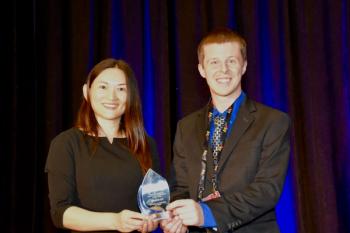
L. Scott Ramos Wins 2021 EAS Award for Outstanding Achievements in Chemometrics
L. Scott Ramos will receive the 2021 Eastern Analytical Symposium (EAS) Award for Outstanding Achievements in Chemometrics at the EAS Symposium taking place November 15–17, 2021, in Plainsboro, New Jersey.
L. Scott Ramos will receive the 2021 Eastern Analytical Symposium (EAS) Award for Outstanding Achievements in Chemometrics at the EAS Symposium taking place November 15–17, 2021, in Plainsboro, New Jersey. The annual EAS awards honor analytical chemists who have distinguished career achievements and who have advanced their fields by superior work in developing theory, techniques, or instrumentation.
Ramos has worked for 37 years at Infometrix,Inc., in Seattle, Washington, where he is the chief technical officer. He received his BS in Chemistry from the Massachusetts Institute of Technology, his MS in Environmental Science from Washington State University, and his PhD in Chemistry from the University of Washington, where he worked with. Prof. Bruck Kowalski. Before joining Infometrix, he was a senior scientist at the Amazon National Research Institute.
While at Infometrix, Ramos has lectured on and led development of methodologies using chemometrics for several companies and organizations in the United States, the United Kingdom, Japan, and Brazil. He has been an invited speaker at the annual meetings of Pittcon, FACCS/SciX, EAS, the Association of Official Agricultural Chemists, and the Gordon Conferences, as well as at the Sociedade Brasileira de Química, Congresso Brasileira de Química, the Congresso da Alago Sobre Geoquímica Orgânica meetings in Brazil, the Congreso Mexicano del Petróleo in Mexico, and the IFPAC/PAT Summit in Puerto Rico. He also served as visiting professor at the Universidade Estadual de Campinas and the Universidade Federal do Pará.
Ramos has been involved with studies of both anthropogenic and natural trace constituents in the environment. His current interests include full automation of multivariate calibration of complex chemical systems, optimization of varietal blending for natural product simulation, and online quality control of multi-stream production of cannabinoid materials.
Newsletter
Get essential updates on the latest spectroscopy technologies, regulatory standards, and best practices—subscribe today to Spectroscopy.




